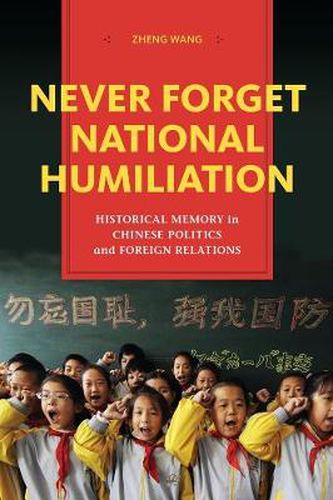Readings Newsletter
Become a Readings Member to make your shopping experience even easier.
Sign in or sign up for free!
You’re not far away from qualifying for FREE standard shipping within Australia
You’ve qualified for FREE standard shipping within Australia
The cart is loading…






The Chinese Communist Party (CCP) has not only survived but thrived in the post-Cold War era, regaining the support of Chinese citizens after the Tiananmen Square crackdown of 1989. Popular sentiment has turned toward anti-Western nationalism despite the internally-driven, anti-dictatorship democratic movements of the 1980s, and China has shown more assertion toward the United States and Japan in matters of foreign policy, while, at the same time, acting relatively conciliatory toward smaller countries in conflict. Offering an explanation for these unusual events, Zheng Wang follows the communist government’s ideological reeducation of the public through the exploitation of China’s humiliating modern history. Beginning in the early 1990s, a national Patriotic Education Campaign relentlessly portrayed China as the victim of foreign imperialist interference. From the mid-nineteenth to the mid-twentieth centuries, the narrative goes, outside forces have attacked, bullied, and torn China apart, subjecting the once-great nation to one hundred years of humiliation.
Wang tracks the CCP’s use of history education to glorify the party, reestablish its legitimacy, consolidate national identity, and justify one-party rule in the post-Tiananmen and post-Cold War era. The result has been the institutionalization of a manipulated historical memory and consciousness now directing political discourse and foreign policy. Wang demonstrates the role historical memory has played in China’s rise: its manipulation by political elites, its resonance in the popular imagination, and its ability to constrain and shape China’s international relations. By concentrating on the telling and teaching of history in today’s China, Wang illuminates the thinking of the young patriots who will lead this rising power in the twenty-first century. He positions historical memory as one of the biggest factors shaping the exercise of Chinese power and the key to understanding Chinese nationalism and intention.
$9.00 standard shipping within Australia
FREE standard shipping within Australia for orders over $100.00
Express & International shipping calculated at checkout
The Chinese Communist Party (CCP) has not only survived but thrived in the post-Cold War era, regaining the support of Chinese citizens after the Tiananmen Square crackdown of 1989. Popular sentiment has turned toward anti-Western nationalism despite the internally-driven, anti-dictatorship democratic movements of the 1980s, and China has shown more assertion toward the United States and Japan in matters of foreign policy, while, at the same time, acting relatively conciliatory toward smaller countries in conflict. Offering an explanation for these unusual events, Zheng Wang follows the communist government’s ideological reeducation of the public through the exploitation of China’s humiliating modern history. Beginning in the early 1990s, a national Patriotic Education Campaign relentlessly portrayed China as the victim of foreign imperialist interference. From the mid-nineteenth to the mid-twentieth centuries, the narrative goes, outside forces have attacked, bullied, and torn China apart, subjecting the once-great nation to one hundred years of humiliation.
Wang tracks the CCP’s use of history education to glorify the party, reestablish its legitimacy, consolidate national identity, and justify one-party rule in the post-Tiananmen and post-Cold War era. The result has been the institutionalization of a manipulated historical memory and consciousness now directing political discourse and foreign policy. Wang demonstrates the role historical memory has played in China’s rise: its manipulation by political elites, its resonance in the popular imagination, and its ability to constrain and shape China’s international relations. By concentrating on the telling and teaching of history in today’s China, Wang illuminates the thinking of the young patriots who will lead this rising power in the twenty-first century. He positions historical memory as one of the biggest factors shaping the exercise of Chinese power and the key to understanding Chinese nationalism and intention.